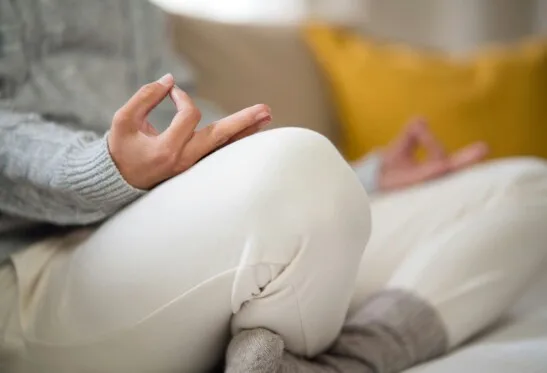Nutrition myths keep you from making the best food choices. Eating disorder myths prevent people from getting the help they need. And sleep myths might just stand in the way of you becoming that well-rested, bright-eyed version of yourself you know is hiding somewhere under piles of rumpled sheets.
Recently, researchers at NYU School of Medicine set out to identify the most common myths related to sleep circulating online. They reviewed more than 8,000 websites to identify the 20 most common assumptions about sleep. Then, they worked with sleep medicine experts to rank those assumptions based on whether each was supported by scientific evidence or should be considered a myth. (They also looked at whether some myths are more dangerous than others.)
RELATED: Beauty Sleep, Explained: Do Sleep Habits Really Affect Your Skin?
Here are a few sleep myths the researchers identified as among the most common and potentially harmful.
(Photos: Shutterstock)
3 Common Sleep Myths
1. Some people are energetic unicorns who only need five hours of sleep

We all have that friend, right? The one who says “I can absolutely thrive on five hours of sleep!” We then envy that friend and try to become them. Maybe if we do it over and over, our body will get used to the shorter time in bed? No. Researchers say that based on the available evidence, adults need more sleep than that. (Think seven to eight hours.) Even if you happen to be that rare person that feels okay, your body and brain are not equipped to perform without those seven hours. The worst part is that if you think you feel fine and assume you’re just a magical being who functions on a higher plane of existence, you could accumulate long-term sleep debt, which is the kind that it may be impossible to make up.
2. Alcohol improves sleep

Fact: alcohol helps you fall asleep. That fact makes it easy to see why those who have trouble drifting off might reach for a glass of wine (or three) to speed the process up. But research shows that gain is short-lived. Drinking alcohol leads to more disruptions later on (AKA, you wake up and can’t get back to bed), and it also messes with the quality of your sleep in various ways, like decreasing your REM cycles.
3. Snoring only affects significant others

Snoring doesn’t usually affect the person who’s doing it much. It’s more of an issue for the partner in the bed who is staring at the ceiling trying to sleep while listening to what sounds like a freight train. But while loud snoring is often harmless for the sleeper, researchers say it can also be a sign of sleep apnea, a disorder in which breathing starts and stops over the course of the night. If snoring is loud and consistent, it’s worth seeing a doctor to determine whether or not it’s a sign of something more serious.





























